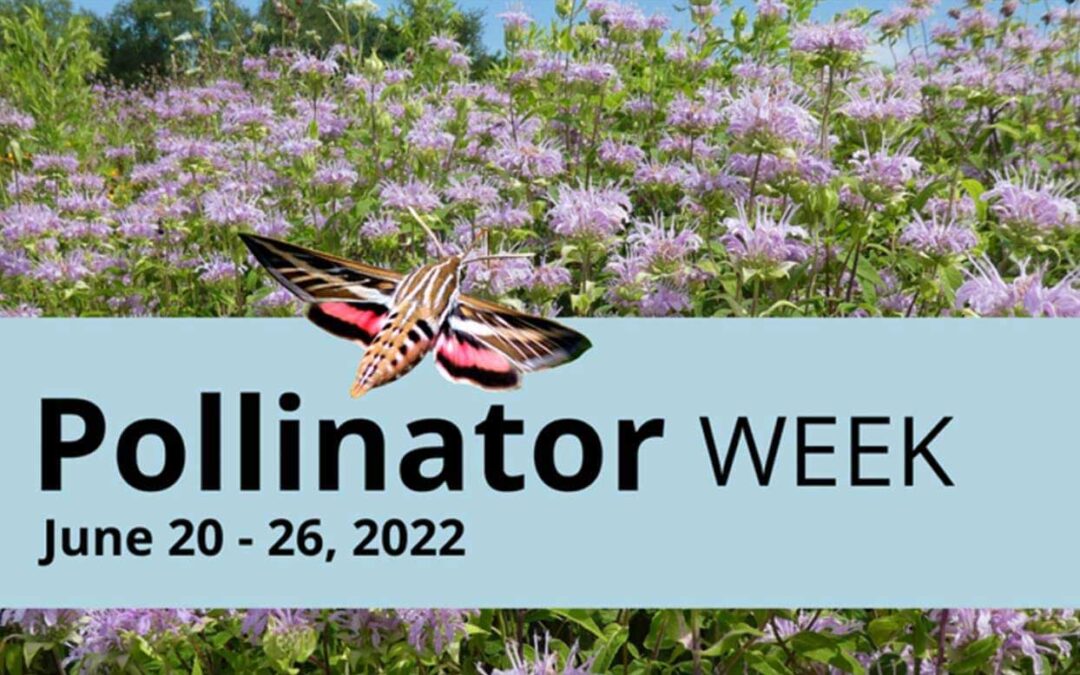Join the June EcoQuest: Unfamiliar Pollinators
WHAT TO OBSERVE:
Let’s celebrate Pollinator Week, June 20-26! Pollinator Week is an annual event celebrated internationally in support of pollinator health. This citizen science project is hosted by the North American Pollinator Protection Campaign’s (NAPPC) Urban Pollinator Taskforce.
In addition to this month’s EcoQuest, we encourage you to join the Pollinator Week BioBlitz
Any and all examples of the lesser-known insect pollinators, like native bees, wasps, flies, beetles and true bugs, as well as the host or nectar plants on which you might find them. When it comes to pollinators, people often think of honeybees and butterflies, but native bees, wasps, flies, beetles and true bugs also play a critical role in pollination. Arizona alone has about 1,300 native bees!
Below are examples of lesser-known insect pollinators that you might find working in your yard, garden or local park. How many can you find in this month’s EcoQuest?
Be sure to check out the accompanying guide to help you identify what you’re seeing.
See the Guide
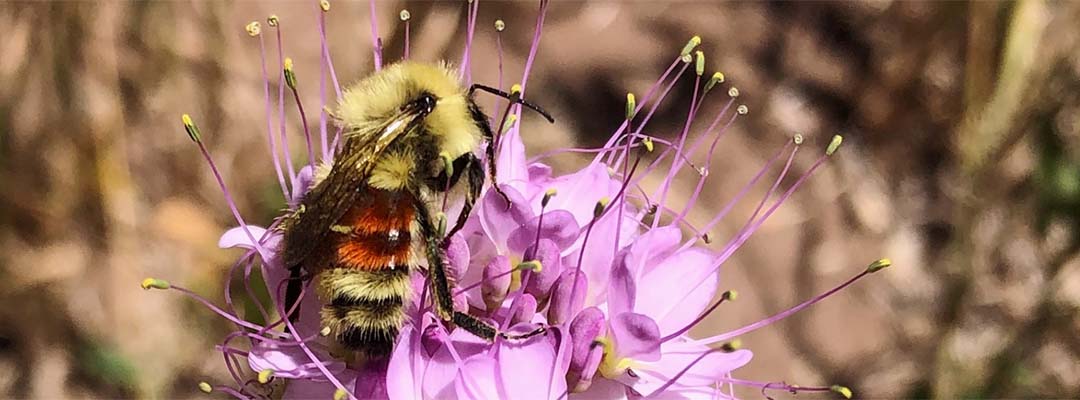
Bees that aren’t honeybees
- Leafcutter and mason bees (Megachile and Osmia spp.)
- Bumblebees (pictured above; Bombus and Psithyrus spp.)
- Sweat bees (Agapostemon, Augochlorella, and Halictus spp.)
- Mining bees (Andrena and Perdita spp.)
- Long-horned bees (Melissodes, Svastra, and Synhalonia spp.)
- Squash bees (Peponapis and Xenoglossa spp.)
- Carpenter bees (Xylocopa spp.)
- Yellow-faced bees (Hylaeus spp.)
- Cuckoo bees (Nomada and Triepeolus spp.)
- Digger bees (Centris spp.)
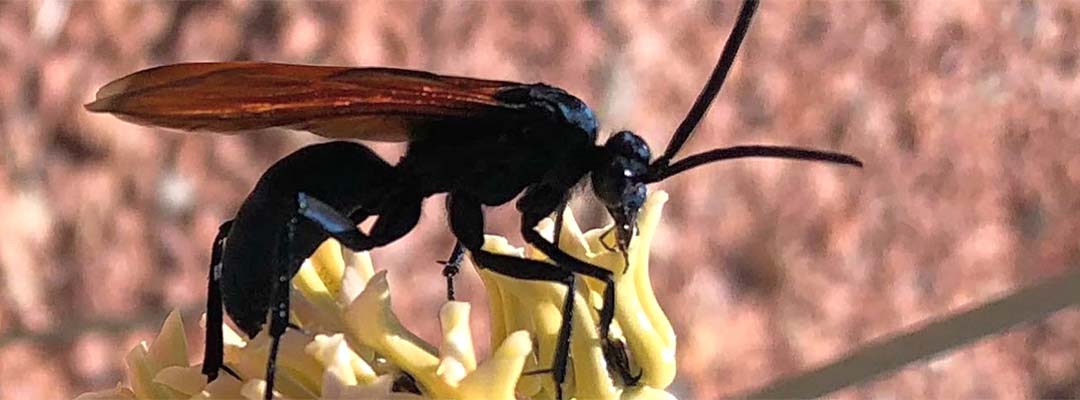
Wasps
- Yellow paper wasps (Mischocyttarus flavitarsis)
- Western yellow jacket (Vespula pensylvanica)
- Navajo paper wasp (Mischocyttarus Navajo)
- Mud daubers (Scliphron caementarium)
- Tarantula hawk (pictured above; Pepsis sp.)
- Cicada killers (Sphecius grandis)
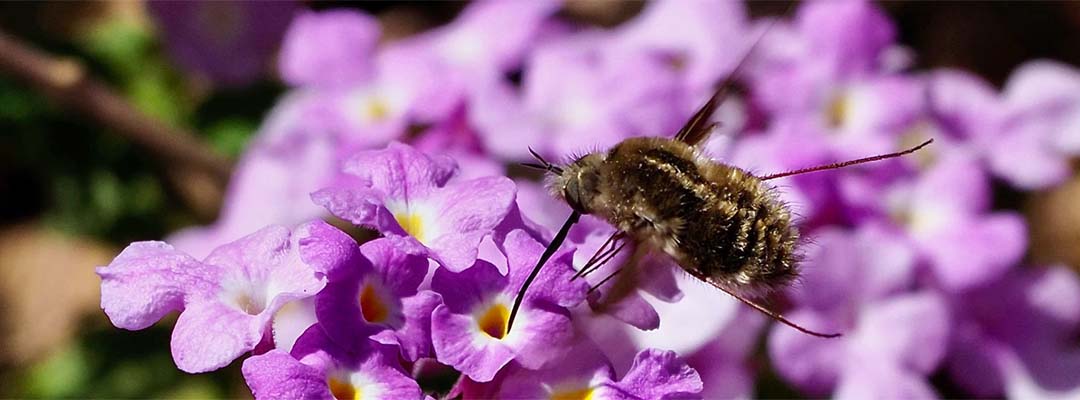
Photos by @thegardenhound
Flies
- Bee fly (pictured above; Bombylius and Systoechus spp.)
- Hover fly (family Syrphidae)
- Midges (family Ceratopogonidae)
- Male mosquitos (family Culicidae)
- Housefly (family Muscidae)
- Blowfly (family Calliphoridae)
- Lovebugs (family Bibionidae)
- March fly (family Bibionidae)
- Crane fly (family Tipulidae)
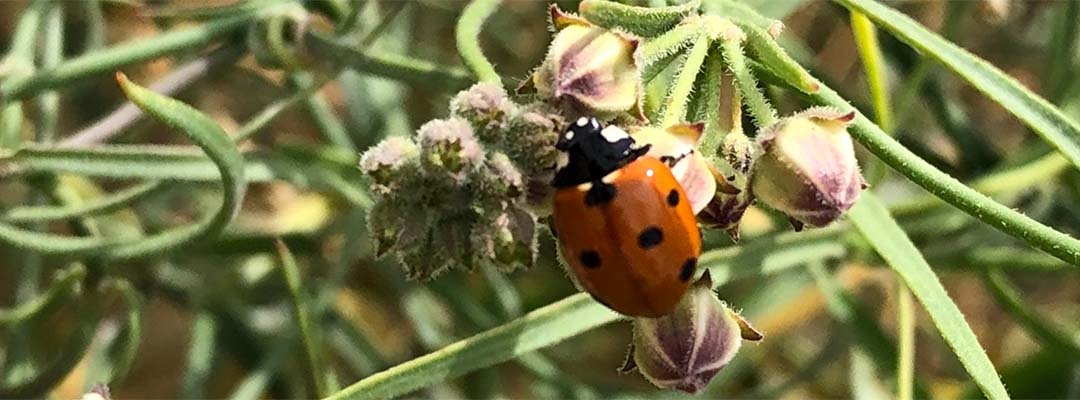
Beetles
- Blister beetle (family Meloidae)
- Longhorned beetle (family Cerambycidae)
- Scarab (family Scarabaeidae)
- Weevil (family Cuculionidae)
- Ladybird or ladybug (pictured above; family Coccinellidae)
- Fireflies (family Lampyridae)
- Click beetle (family Elacteridae)
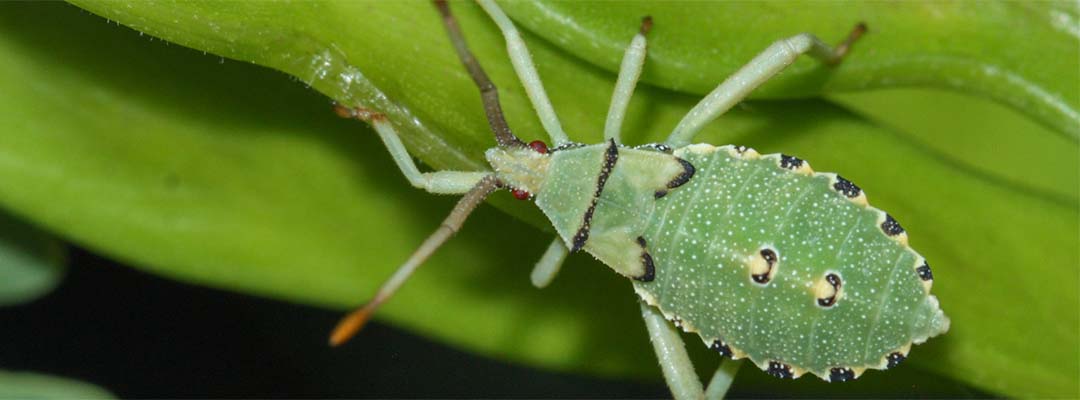
True Bugs
- Stink bug (family Pentatomidae)
- Wheel bug, leaf-footed bug (pictured above; family Coreidae)
- Bordered plant bug (family Largidae)
- Assassin bug (family Reduviidae)
- Planthopper (family Delphacidae)
Observing lesser-known insect pollinators can increase our knowledge, understanding and appreciation of pollinators and can contribute to observation, population and distribution information. Observing the plants these insects are visiting can also help us better understand plant-insect relationships.
Sources and more information:
The A Bee Cs of Arizona’s Native Bees (Arizona-Sonora Desert Museum)
Pollen Specialist Bees of the Western United States (Jarrod Fowler)
Pollinator Partnership
The Pollinator Partnership and collaborators have created a helpful guide for identifying common bee species. See it here.
Project member @thegardenhound has created PollinatorWeb, and we encourage you to check it out!

EcoQuests are month-long challenges that are part of the larger Metro Phoenix EcoFlora project. Learn more by visiting our website.
Look for project happenings, EcoQuest announcements and more in the newsletter, project journal and on social media.
Please do not observe indoor houseplants or pets.
For your own safety and the protection of plants and wildlife, do not trespass when making observations. Please follow all posted rules and guidelines in parks/preserves and do not enter private property.
Do not remove or move natural materials (plants, animals, rocks).
Respect wildlife (do not touch, feed, or disturb animals and keep a safe distance).
Do what’s best for you and your community.
For COVID-19 information and guidelines, visit:
https://www.inaturalist.org/projects/city-nature-challenge-2020/journal/31768-cnc-covid-19
https://www.inaturalist.org/blog/31664-exploring-nature-when-you-re-stuck-at-home
Arizona Office of Tourism: Responsible Recreation in AZ
https://tourism.az.gov/responsible-recreation-across-arizona
